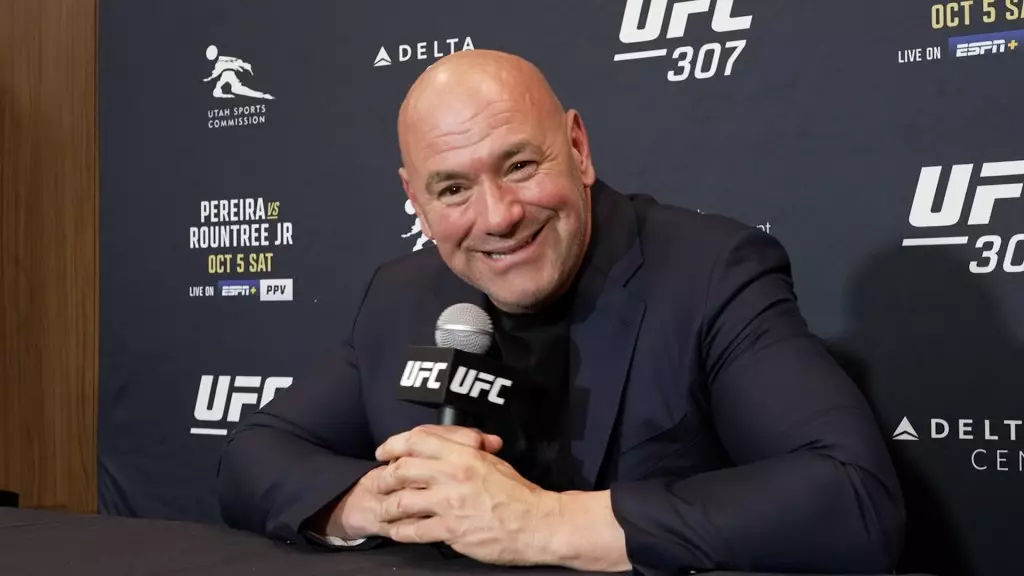In the high-stakes world of mixed martial arts (MMA), rivalries not only exist within the ring but also between promotions. A recent pre-fight event for UFC 307 highlighted this tension as Dana White, the UFC’s CEO, unleashed a scathing critique of the Professional Fighters League (PFL). His comments came after the PFL released a promotional video touting their upcoming championship bout between Larissa Pacheco and Cris Cyborg, set to take place in Saudi Arabia on October 19. This video emphasized Pacheco’s controversial victory over Kayla Harrison—a strategic move by PFL as they attempt to regain footing in a competitive market.
White’s reaction was both pointed and revealing, suggesting that PFL’s recent marketing maneuvers stem from a place of desperation. With a firm assertion that the organization is struggling financially, White indicated that such promotional tactics were symptomatic of deeper issues faced by PFL. His choice of language during the post-fight press conference reflected a mix of disdain and derision, as he questioned the wisdom behind PFL’s strategy to spend extravagantly in a bid to capture audience attention. “When you’re losing as much money as they are, f*cking go for it,” White retorted, mocking their intentions to outdo UFC’s past financial achievements.
Kayla Harrison’s journey from PFL to UFC stands as a narrative of rebirth and newfound opportunities. After her unexpected loss to Pacheco, Harrison’s move to the UFC has been marked by immediate success, securing two consecutive victories in the octagon. White noted that her ascent was not merely due to her fighting skill but also as a result of her evolution as a personality within the sport. Under the UFC banner, Harrison seems to have shed the constraints that held her back, allowing her to amplify her brand.
“What you feel when you finally get to the UFC is like nothing else,” White stated, painting a vivid picture of what it’s like for fighters transitioning from rival promotions. His assertion that competitors can “rot away” in lesser leagues casts a shadow on PFL and Bellator, implying that these organizations fail to provide the necessary platform for fighters to truly thrive.
With Harrison emerging as a formidable force in the women’s bantamweight division, the stage is now set for a potential exhilarating clash with Julianna Peña, who recently captured the title from Raquel Pennington at UFC 307. This potential matchup has ignited a spark of excitement among fans and pundits alike, as it represents a significant moment in the evolution of women’s MMA. White’s anticipation for a Peña-Harrison bout speaks volumes about the narratives unfolding in the sport.
The UFC is not merely a promotional powerhouse but a platform where fighters have the chance to realize their true potential. As White put it, “When you get here and you start to break into the top five, top three – it gets tougher.” This sentiment encapsulates the harsh reality of elevated competition, establishing the UFC as the ultimate proving ground for fighters aspiring to reach the zenith of their sport.
In essence, White’s unabashed criticisms of the PFL shine a light on the broader dynamics at play in professional MMA, where ambition, desperation, and the quest for legitimacy intertwine, shaping the future of combat sports as we know it.

